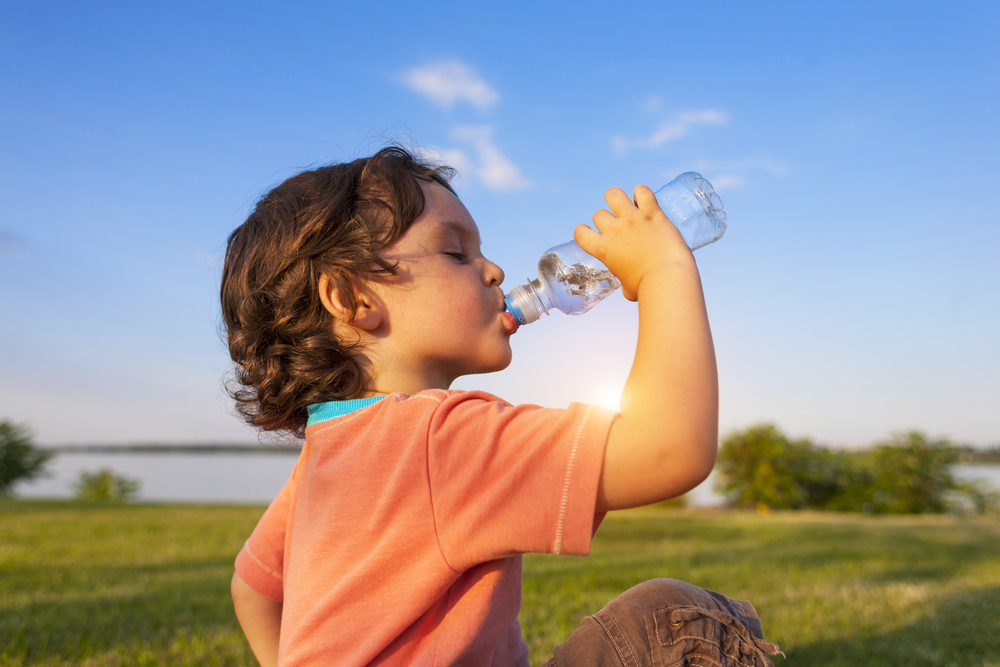

Whether because of taste or worries about contamination, over the past decade or two, more and more parents have been skipping tap water and giving their children bottled water. But is bottled water bad for your child’s teeth? It could be, because it’s often missing one key ingredient: fluoride! According to the Centers for Disease Control and Prevention (CDC), fluoridated water is effective in reducing cavities by more than 25% in kids and adults. Considering dental caries (cavities) are one of the most common chronic diseases of childhood, this is a huge benefit for your little one’s smile.
Community Water Fluoridation: The Basics
Communities have been adding fluoride to their water sources for over 75 years. The practice dramatically reduced the incidence of tooth decay in the United States, which is why the CDC has called community water fluoridation one of the “greatest public health achievements of the 20th century.”
Is fluoride safe for kids? You bet! Study after study has indicated that fluoridation of community water supplies is safe and extremely effective in improving the oral health of people of all ages, including children. It’s supported by the American Dental Association, the American Medical Association, the American Academy of Pediatrics and the World Health Organization.
How Does Fluoride Work to Prevent Tooth Decay?
The bacteria in plaque feed on the sugars and starches from what we eat or drink. When they do, they release acids that attack the enamel, causing a loss of minerals, called demineralization.
Minerals in saliva, as well as fluoride, help replace the lost minerals (remineralization). When demineralization happens more often than remineralization, tooth decay occurs. As tooth decay progresses, it eats away at the enamel, leaving a hole, or a cavity.
Fluoride is an oral health superhero and works in a number of ways. First, it helps to remineralize the teeth by combining with the calcium and phosphate present in saliva. Second, it strengthens the enamel, making it more resistant to those acid attacks. Third, fluoride works on the bacteria itself by lessening the bacteria’s ability to produce acids and making it harder for it to stick on the tooth surface.
Fluoridated water is considered both topical and systemic fluoride. It’s a source of topical fluoride because the fluoride comes into contact with the tooth surfaces as a child drinks it, promoting remineralization.
It’s also systemic because the water is ingested. When kids receive systemic fluoride before their permanent teeth erupt, it gets incorporated into the structure of the permanent teeth, making the teeth stronger and better able to fight off cavity-causing acids.
What if I Don’t Want My Child to Drink Tap Water?
Plain water doesn’t contain sugar or starches and, therefore, does not cause tooth decay, regardless of whether it comes from a bottle or your tap. So, it’s not that bottled water is bad for your teeth, it’s just that kids are missing a regular source of fluoride when they drink it.
If you’re concerned about your tap water, most home water filters, like Brita and Pur filters, can filter out the stuff you don’t want, while still maintaining the optimal level of fluoride. This, combined with an excellent oral hygiene routine and regular dental exams and cleanings, will reduce your little one’s risk of tooth decay.
Is there fluoride in bottled water? Yes, there is fluoride in bottled water from certain brands. They’ll be labeled “fluoridated,” “fluoride enhanced” or “fluoride added.” If you do choose bottled water with fluoride, make sure your child is drinking enough of it to get the benefits.
If your municipal water source doesn’t have fluoride, you have a reverse osmosis filtration system, which filters it out, or you prefer the bottled water brands that don’t contain fluoride, all isn’t lost. Ask your pediatrician or pediatric dentist about fluoride drops or supplements once your child is 6 months old. These can give kids systemic fluoride for stronger permanent teeth, while fluoride toothpaste and professional, topical fluoride treatments will offer a powerful boost in remineralization.
How Do I Know if My Child is Getting the Right Amount of Fluoride?
Not enough fluoride can lead to cavities, while too much fluoride can cause a condition called fluorosis, which may result in white spots or pitting of the enamel. So how can you tell if your child is getting the ideal amount? If your child drinks tap water and brushes their teeth with the recommended amount of fluoride toothpaste (a tiny smear the size of a grain of rice from the first tooth to age 3 and then a pea-sized amount from age 3 to 6), they should be getting the correct dose.
If your child isn’t getting fluoride through their water, again, talk with your pediatric dentist or pediatrician about fluoride supplements. These supplements are usually only needed if your child doesn’t drink fluoridated water. To find out if your tap water has fluoride in it, contact your public water system or check the CDC’s My Water’s Fluoride tracker.
Schedule a Visit With a Naperville Dentist for Kids!
Let’s work together to give your kiddo a healthy, cavity-free smile. Our expert kids’ dentists will evaluate your child’s fluoride intake and offer personalized guidance to ensure they’re getting the ideal amount. Schedule a visit at Innovative Pediatric Dentistry in Naperville, IL today!


